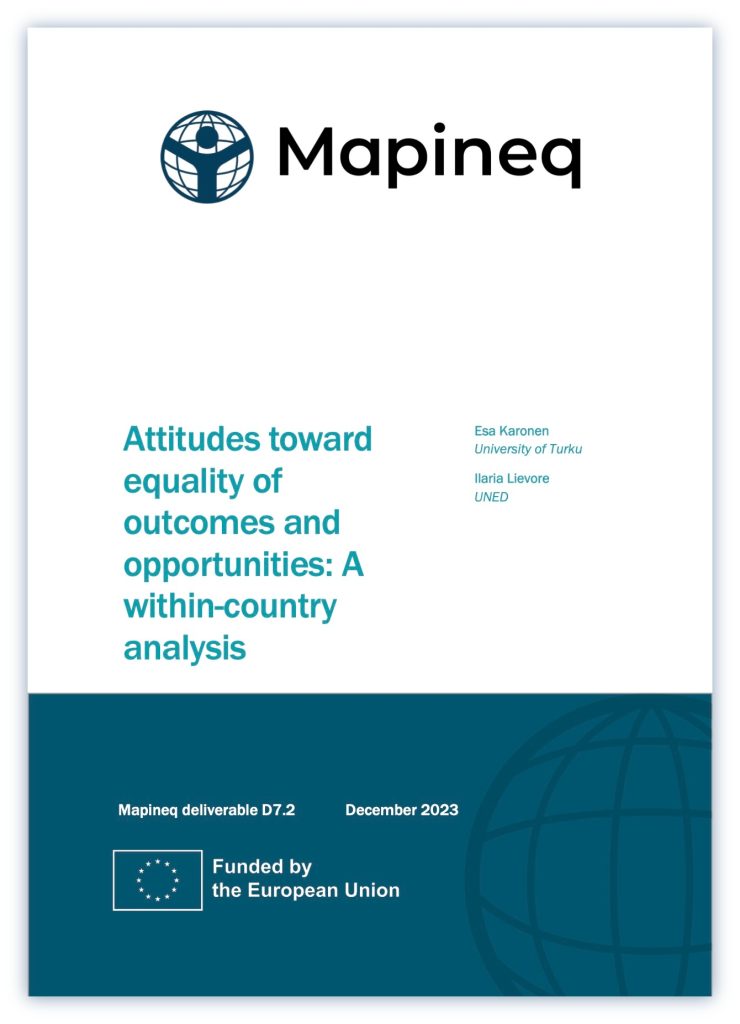Attitudes toward equality of outcomes and opportunities: A within-country analysis
This research aims to contribute providing new evidence on individual attitudes toward equality, studying individual attitudes on equality of opportunities and equality of outcome in several European countries, and focusing both on how different factors affect differences between European countries as well as on differences within countries at the regional level. We use the European Social Survey’s years 2008 and 2016 along with other data sources to within-country differences, by focusing on regional-, individual-, and economic factors. The main results show, that both country- and regional-level variance in the equality attitudes were equally significant. Over time, we found that attitudes toward both equality of outcomes and opportunities attitudes have become stronger, yet opinions have become more fragmented. Countries that share similar systems, seem to be also similar in equality attitudes. On specific factors, we found that economic variables with political alignment were important in people’s attitudes on equality, while on a regional level higher economic output decreases agreement with equality of outcome.
By Esa Karonen and Ilaria Lievore.

Overall, regions are as important as countries for explaining equality attitudes. Eastern European countries and the UK are more in favour of rewarding efforts than rest of the Europe, which agree more often with equality of outcome.

We found that in both cases of equality attitudes, the original sentiment in each country has increased or decreased their magnitude over time. In addition, the opinions in both have become more fragmented between 2008 and 2016.

Economic factors are important at both the individual and regional level. At the regional level, the GDP had negative effect on the equality of outcome, while at the individual level, income, occupational status, and political attitudes were important.

